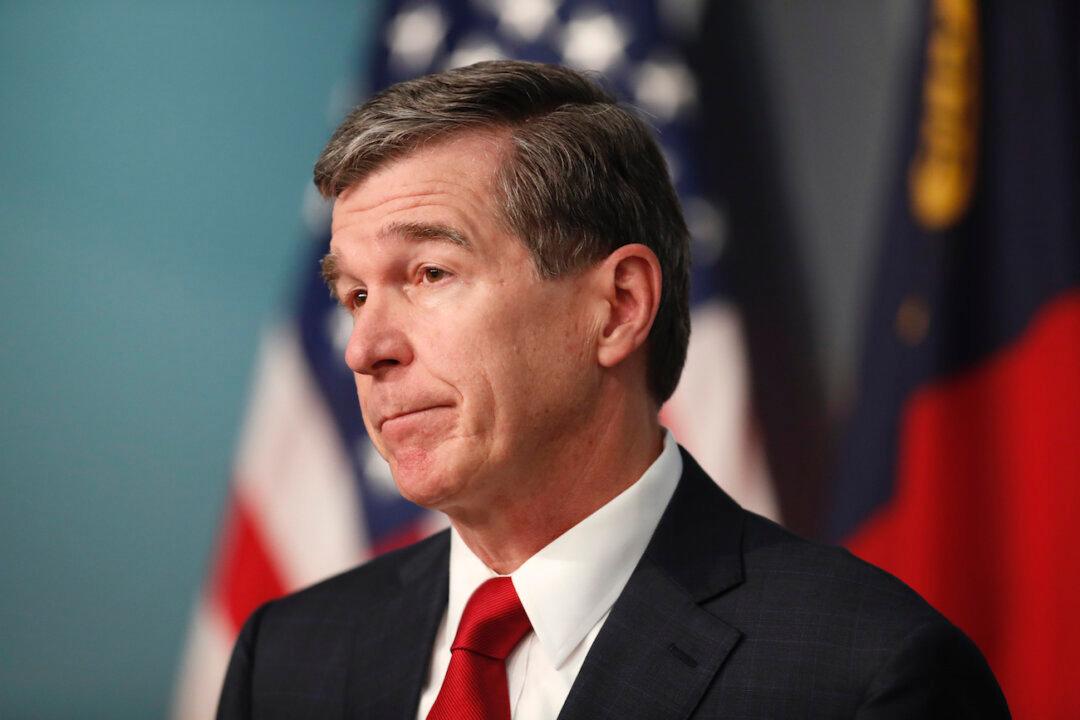North Carolina’s governor on Dec. 8 announced an executive order that requires people to stay home from 10 p.m. to 5 a.m. each night.
Gov. Roy Cooper’s order takes effect Dec. 11 and will be in place until at least Jan. 8, 2021.


North Carolina’s governor on Dec. 8 announced an executive order that requires people to stay home from 10 p.m. to 5 a.m. each night.
Gov. Roy Cooper’s order takes effect Dec. 11 and will be in place until at least Jan. 8, 2021.